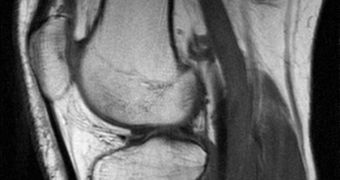Scientists in the United Kingdom have recently demonstrated a new type of Magnetic Resonance Imaging (MRI) device in action. The technology has been around for a couple of years, but it hasn't really caught on until now, the researchers say. The MRI instrument is able to show doctors and expecting parents intimate details about their babies, and can also create scans of the little one's brain, so that healthcare experts can assess his or her medical condition, the BBC News reports. The fresh brain study is being conducted by London's Hammersmith Hospital, which is working with the Medical Research Council of the UK.
Potential malformations, growth problems or injuries are just a few of the large array of conditions that the scans can reveal. The sooner, the better, doctors say. Being able to find out if something is wrong with the baby can help medics either fix the problem, or know what to expect once the child is born into the world. Conditions such as cerebral palsy and sometimes autism can be diagnosed, and maybe even treated while the child is still in its mother's womb. The British hospital is the first in the world to provide the high-resolution MRI capabilities. The institution is a part of the Imperial College NHS Trust.
Professor Mary Rutherford, who is the leader of the research team at the hospital, states that the individual brain scans can be pieced together to display an accurate, 3D image of the unborn child. “This information will help obstetricians to decide whether a baby is likely to have severe problems with development or whether to deliver a baby sooner as brain growth may be better outside the womb,” she reveals. “Most women enjoy coming and benefiting from the expertise and attention throughout their pregnancy,” she says of how the study has been going on thus far.
“What we are trying to do with the fetal MRI is to improve our way of understanding how the fetal brain develops both abnormally and normally so it gives us more information than ultrasound alone. It is giving us a really powerful tool to look at things in much more depth. We have been studying the brain in this way for nearly two years but are now also looking at specific problems such as intrauterine growth restriction which has a pretty high morbidity. This is a real problem in obstetrics. The babies that survive are often born prematurely and may be susceptible to brain injury and gut inflammation,” she concludes.

 14 DAY TRIAL //
14 DAY TRIAL //